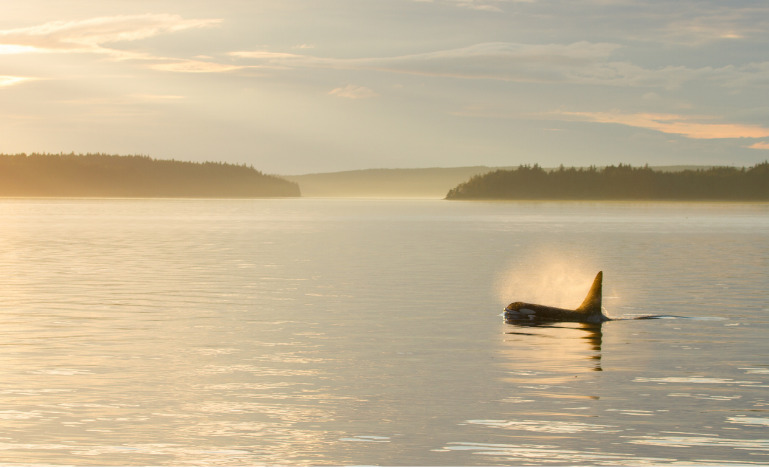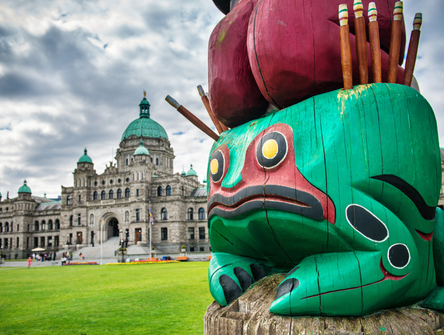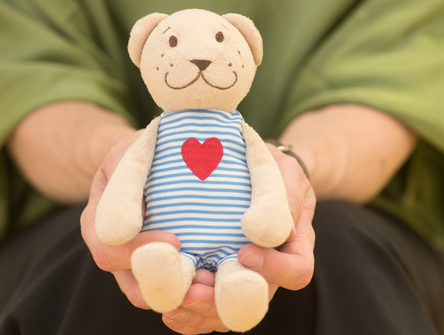An end to the captivity of whales and dolphins
A historic piece of animal rights legislation, the ‘Free Willy’ bill, is now set to become law.

It was nearly five years ago that former Sen. Wilfred Moore first watched Blackfish with his son.
The 2013 documentary examines the life of Tilikum, a performing orca, and the toll captivity took on him. He was just two when he was captured in 1983 near Iceland. He spent the rest of his life in a tank, first at Sealand of the Pacific in Victoria, B.C. and then at SeaWorld in Florida, where he was moved in 1992. Before his death in 2017, he was involved in the deaths of three people, which the film attributed to him having being driven mad by captivity.
Moore couldn’t believe what he saw on the screen. “You couldn’t help but feel for him.”
A Nova Scotia native who had long been awed by whales in the wild, Moore said he had a tough time accepting they could ever be at home in a tank.
When his son, Nicholas, asked if there was something he could do about it Moore said he would try.
And now he has. Nearly four years after he introduced Bill S-203, better known as the ‘Free Willy’ bill, keeping whales, dolphins, and porpoises in captivity, is about to become a criminal offense in Canada.
After languishing in the Senate for years and swimming against a strong tide of Conservative opposition and procedural stalling tactics, the House of Commons voted to pass the Ending the Captivity of Whales and Dolphins Act this week.
“Canada is better for this,” said Moore, a lawyer who retired from the Senate in 2017, but has continued to work on this bill. “This shows leadership and that we care for the creatures in our oceans.”
While some jurisdictions around the world have banned the captivity of cetaceans or are working to, Canada is the first country on the continent to do so.
Anyone found keeping cetaceans in captivity in this country can now face fines up to $200,000 under the Criminal Code. The legislation includes a grandfather clause for those animals already in facilities in Canada and permits the rescue of animals in distress, as well as legitimate research. It also bans breeding and the trade of reproductive materials.
Sen. Murray Sinclair took on sponsorship of the bill when Moore retired and Green Party Leader Elizabeth May guided it through the House.
“Today’s a really good day for animals in Canada,” she told reporters Monday, adding she was “relieved, gratified and appreciative” the bill had passed.
The Senate fisheries committee spent months studying the bill in 2017, holding 17 meetings with more than 40 witnesses. Senators heard that orcas dive up to 200 meters for food in the ocean and have been known to travel 150 km in a day. In a tank, their range is 1/10,000th of one per cent the size of its natural home range.
They’re social creatures that live in large family groups. Being separated causes them stress and leads to behaviours not seen in the wild, including aggression. They break their teeth, their dorsal fins collapse, and some float listlessly or swim in circles. Dr. Lori Marino, a leading American cetacean scientist, told senators some captive cetaceans have tried to commit suicide by beating their heads against their tanks — or leaping from them all together.
The bill was backed by a coalition of more than 20 leading marine scientists from around the world and stakeholder organizations, as well as parliamentarians from across party lines. It also had the support of Canadians, tens of thousands of whom repeatedly emailed and called MPs and senators. Twice the email influx crashed the Senate’s servers in response to reports Conservative senators were trying to kill the bill quietly.
This spring, Marineland, one of two facilities in Canada that keep captive cetaceans, argued the legislation was unconstitutional. Lawyer Andrew Burns told the House fisheries committee that without a proclamation date, legal acts would become illegal upon Royal Assent. Specifically, he said staff would be committing a criminal offense when several of the park’s 50-plus belugas deliver babies this summer. Lawyers from the Department of Justice said that was not the case.
The park is also home to one lone orca, Kiska. Meanwhile, the Vancouver Aquarium has one dolphin left at its facility and has announced it will no longer keep cetaceans.
In a statement, Marineland said the bill “affirms that cetaceans living (there) does not amount to animal cruelty, despite the allegations of uninformed, professional activists.”
“What makes S-203 remarkable legislation is the fact that while amending the Criminal Code of Canada…Parliament sought to include exemptions to what is otherwise a criminal act. Doing so acknowledged Marineland’s role as a custodian for the cetacean populations that call Marineland home, and specifically acknowledged that Marineland Canada’s actions are not inherently animal cruelty.”
Barbara Cartwright, CEO of Humane Canada, which is the national federation of humane societies and SPCAs, said: “That’s simply not the case.”
“There is no way we can provide for the needs of cetaceans in captivity. Doing tricks for entertainment is no longer acceptable to Canadians.”
As Marineland said it “began an evolution in our operation some time ago,” and is compliant with S-203, she called on the park to release its belugas, dolphins and lone orca to a marine sanctuary. Work is underway to create them on the coast of Nova Scotia and British Columbia.
“It would be great if (Marineland) would actually fund them,” Cartwright said. “Those sanctuaries are going to be put in place in order to deal with a problem they’ve created.”
Sanctuaries aside, bill proponents say its passage represents a turning tide.
“This is not only a tremendous leap forward for whales and dolphins, but for animal protection more generally in Canada,” said Camille Labchuk, executive director of Animal Justice, the country’s only animal law organization.
“Not since our criminal animal cruelty laws were first enacted in the 1800s has Parliament passed any significant and serious animal protection legislation. The passage of Bill S-203 signals the beginning of a whole new era where Parliament is considering animal issues, taking them seriously and passing legislation.”
Gord Johns, MP for Courtenay—Alberni and the NDP’s critic for fisheries, called it “historic.”
“This is the most important piece of animal rights legislation that has been passed in Canadian history,” he said.
“But whales and dolphins don’t know borders. They’re still captured around the world, and this needs to come to a stop. I think Canadians would like to see the federal government lead the charge and work with the international community to push for the end of the capture of whales and dolphins for captivity globally.
“This is an opportunity to go much further. We can’t just be satisfied with what’s happening here at home.”


